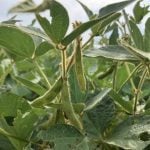SASKATOON – A new company hopes to develop the weed cow cockle into a commercial crop that can be processed into cosmetics and health-care products.
Saponin Inc. was named after a component of the same name found in the plant family that includes cow cockle. Saponins have a host of potential medicinal applications.
Saponin Inc. has been using the expertise and equipment of the National Research Centre’s Plant Biotechnology Institute, through the new BioAccess Commercialization Centre, to develop the potential of the plant, formally called saponaria vaccaria, said Paul Arnison, the company’s president.
Read Also

Malting barley exporters target Mexican market
Canada’s barley sector is setting its sights on the Mexican market to help mop up some of the lost demand from China
“The basic cell and tissue culture work, developing the product concept and the idea, all of that basic work on saponaria was done here under one of these umbrella programs that NRC has here to develop underutilized species that could be a health-care product,” he said.
Arnison has been active as a consultant and an entrepreneur in biosciences for 25 years. He has launched four companies that were involved in researching applications for natural products in tropical wood waste, nitrogen-producing plants through bio-engineering, and developing hybrid seeds.
“Some were more successful than others,” he said with a laugh, adding that larger firms eventually gobble up many small startups once their operations show promise.
“If you’re successful, then the big companies want you.”
Arnison’s company , which includes partner Michael Oelck and a staff of six, is busy propagating seed supplies and using the technology made available through the BioAccess Centre, including a mass spectrometer worth $1.5 million, as it explores possible uses for the plant’s starchy seeds.
With six tonnes of seed accumulated, the company is preparing to recruit western farmers as contract growers so that up to 50 tonnes of seed can be stockpiled by next year, and 5,000 tonnes the following year, for use as raw materials for further research.
Saponaria is similar to canola in growth and requirements and produces a similar sized brown seed. The hardy, annual plant is best adapted to the drier, southern light-brown soil regions. The commercialized seed stock has been domesticated from feral varieties brought over by settlers a century ago.
Saponaria vaccaria is a member of the Caryophyllaceae family, which includes plants such as baby’s breath, rockery pink and carnation. For marketing purposes, Arnison has chosen to call the new variety prairie carnation.
“This will be a new crop for western farmers to grow,” he said. “We believe that the returns will be superior to cereals.”
How much farmers will be paid to grow the plant will depend on how successful the company is in exploiting the seed’s commercial properties.
The seeds show potential as an industrial bioproduct, and could be used for personal or veterinary care products and in nutraceutical compounds.
The plant produces saponin, a class of thousands of complex biochemicals that could be useful in anti-cancer and anti-inflammation research, he said. The active ingredient has potential for use as an adjuvant in vaccines, because it has detergent qualities that irritate cells and cause an immune reaction.
“Saponins are actually a very strong immunity stimulant,” he said. “They are being investigated now by all of the vaccine manufacturers.”
While the primary market is cosmetics now, he said, research might unlock additional uses.
“This particular species has a very fine, soft starch that is of particular interest to the cosmetics industry, which can be used as a replacement for oil. Many people do not like cosmetics with oil because oil is bad for your skin,” said Arnison.
Genetic modification could allow more exploitation of saponaria, but that application could be years away.
“One of the problems we have is that people don’t want traditional crops adulterated with GMOs. One solution to that is to take an entirely new species that has never been used before and convert it into a cross. And then you don’t have that problem. So this will be a new industrial crop.”
To develop new uses for the plant, more money is needed to support research. To fund this aspect, Arnison first plans to market the plant’s basic potential in cosmetic lotions. Saponin received $2.2 million in private start-up funding from Clarity Life Sciences in Calgary.
An advantage of working in the BioAccess facility is security, with a guard at the entrannce and computerized locks on the doors. Years of work could be destroyed if anti-GM activists were to break in, Arnison said.
“That is a concern. Not that we are doing anything that is the slightest bit of concern to anybody, but it doesn’t matter what the truth is if they come in and stomp on your stuff. They want to cause trouble.”














